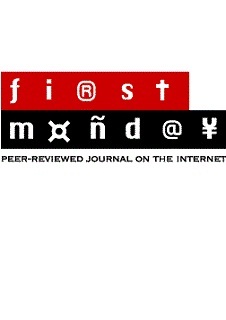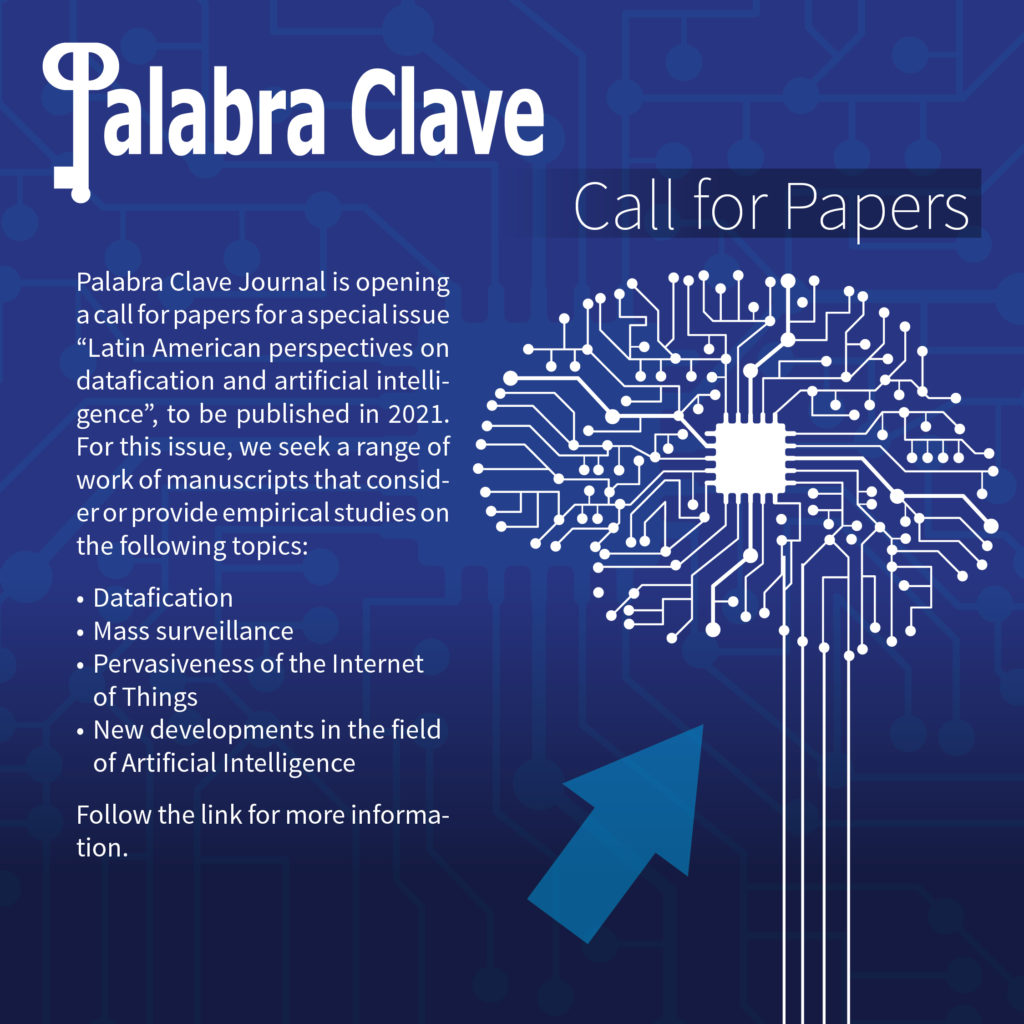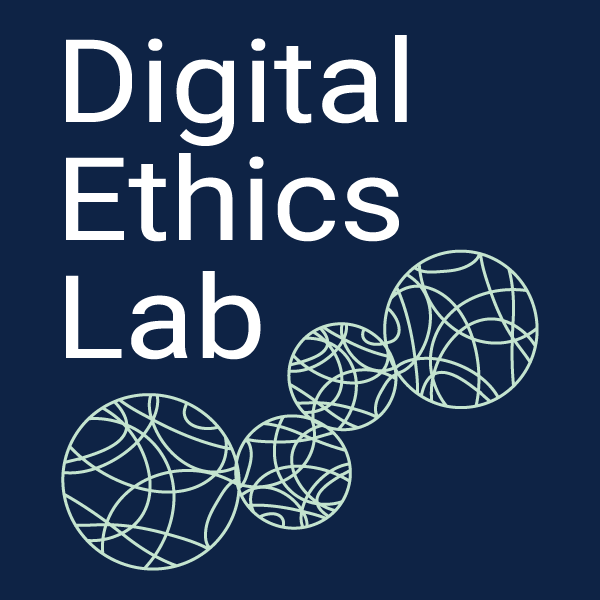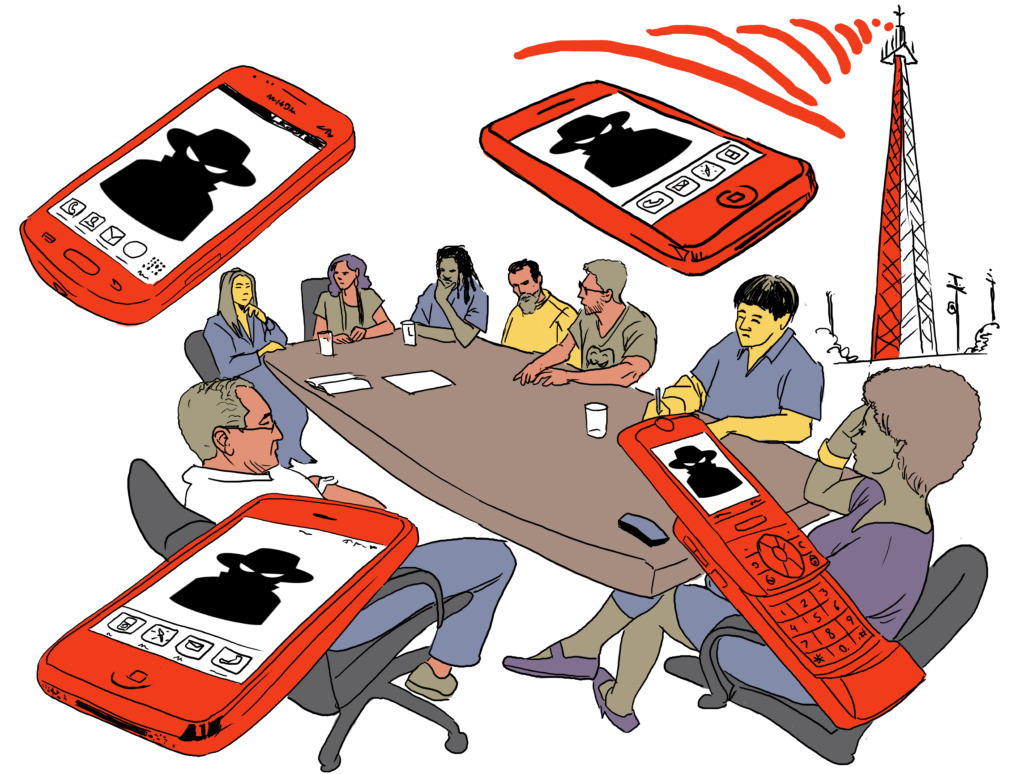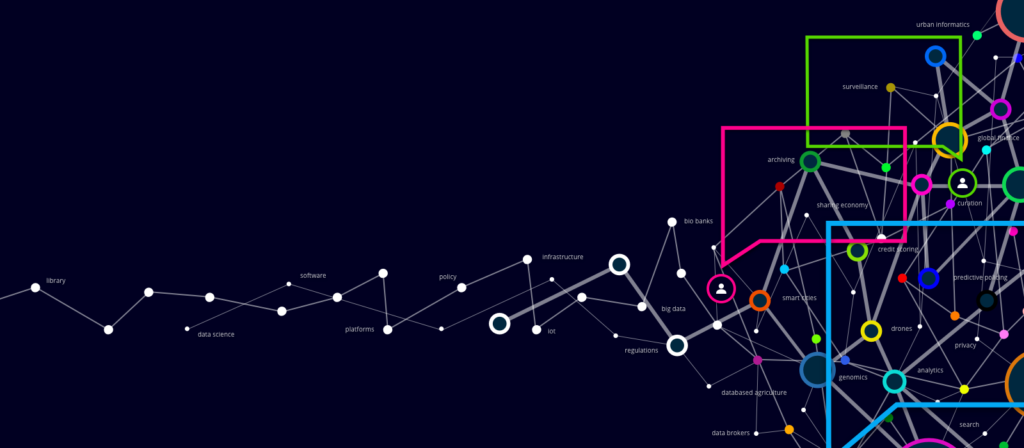By Becky Kazansky and Guillen Torres
Intro
On September 15th 2019, DATACTIVE held a one-day workshop following on the heels of the Data Power conference in Bremen, Germany. We were kindly hosted by the Centre for Media, Communication and Information Research (ZeMKIi) of the University of Bremen. Over this day, we sought to create a space to explore and unpack the concept of the ‘everyday’ as it figures into studies of data practices and resistance to datafication. The workshop brought together a small group of interdisciplinary scholars working on issues related to the making and unmaking of datafication, to paraphrase Neal and Murji (2015). Participants came from sociology, anthropology, computer science, media studies, and informatics. Their topics of research include community activism, platform labor, feminist data practices, and the data-resistant practices of states, studying datafication through the respective participation of citizens, governments, corporations, and academia. In this blog post we explain our inspiration for this workshop, and highlight some of the discussions that resulted. We conclude with an invitation for further ideas and contributions.
From data activism to everyday data
Since coming together in 2015, the DATACTIVE research group has been engaged in the empirical study of the ‘politics of data according to civil society’. During the past four years, we have interviewed over 200 civil society actors from all over the world, who ‘reactively’ or ‘proactively’ (see: Milan and Van der Velden, 2016) engage with datafication through a myriad of different projects (Check our output and blogs for some examples!). Our approach to these data practices was initially guided by the category of data activism, which helped us foreground new types of political activity made possible by the availability of data. We have since observed that the data activist lens holds the potential to draw sharp boundaries between political and non-political engagements with data. Yet, as datafication has continued to become more pervasive, with responses (including tactics of resistance from different parts of society) to it ever more varied, it has become harder to pinpoint what practices qualify as activism per se — and which ones do not.
In our research we have encountered many ‘data practices’ that sit within an interzone that blurs hard distinctions between the ‘activist’ and the ‘everyday’. Furthermore, the big and small data-related controversies of the past years have made evident that what is regarded as ‘normal’ or ‘ordinary’ shifts with the diffusion of new technologies, forms of knowledge production, and sociopolitical instabilities (Amoore, 2013). Furthermore, we’ve noted that what is considered ‘everyday’ or ‘extraordinary’ fundamentally pivots around the perspective privileged in making this distinction. We have thus grown interested in exploring how the ordinary and everyday should be accounted for in the study of data practices and in our understanding of resistance to the harms of datafication.
Much research on the relation between datafication and people’s agency has focused on highly- skilled proactive data activists (Gutierrez and Milan 2019), or on how human agency is overridden by algorithmic decision-making. Taking a slightly different road, we seek to explore how power asymmetries are constantly reproduced or challenged through people’s engagement with data in everyday life. In our view, investigating how datafication is “made and unmade” in everyday life implies foregrounding practices which may not be immediately recognized as data activism, but still consist of a response that can be understood as political, even if not necessarily classified as such.
As part of our ongoing interest in locating spaces for human agency within datafication, we DATACTIVE project members have engaged in a number of lively internal discussions about how data activism fits with broader conceptualizations of ‘data practices’ (Fotoupoulo, 2019), emerging notions of ‘data politics’ (Ruppert et al., 2017), and the imperative to study the ‘everyday’ of dataficatication (Kennedy, 2018). With the goal of questioning the notion of the “ordinary” amidst continuous optimization (Gürses, et al, 2018), creeping surveillance (Monahan, 2010) and perpetually looming states of exception (McQuillan, 2015), we decided to organize a workshop to explore the role of the everyday as a locus of agency, resistance and political intervention.
The workshop
We kept the format of the day a bit experimental: rather than requiring participants to produce an original piece for the workshop, we asked them to take their existing work around datafication and reflect upon it through the lens of several exploratory questions:
- How do every-day acts come to be understood as spaces of political intervention?
- What are the every-day and banal aspects of “acting on” and “through” data?
- How does agency evolve in relation to everyday engagement with data?
- Who determines what is considered the “everyday”?
- What perspectives are privileged to build the ordinary/extraordinary distinction?
- How does the ordinary change with the diffusion of new technologies and politics?
- What happens between the extraordinary moments of political mobilisation that we hear about in the media?
Probing these unwieldy questions in our small pocket of space-time surfaced a number of shared concerns, which we briefly highlight below.
Big P politics and the everyday
Subjacent to our interest in the everyday is the distinction between The Political (read in an egregious Carl Schmitt voice) and politics. During the workshop, this found expression in a collective concern about what we, as researchers, may leave out of sight if we only focus on what seems overtly political. One of the initial intuitions guiding the theme of the workshop was that the distinction between activist and non-activist engagements with data hides a very Political decision that needs to be questioned, and during the discussion this proved to be a key topic. When focusing on everyday experiences of datafication, we, as researchers, are responsible for locating, highlighting and questioning the political consequences of our making (extra)ordinary of data practices. This requires a sensibility towards the context and discourses of the people enacting the practices we study, which means that their status as Political/activist depends more on their own lived experiences and less on our analytical categories. The relevance of people’s everyday lived experiences also means that we need to remain attentive to how race, gender, class and politics influence what practitioners, observers and powerful actors understand as Political or ordinary.
Marginalized, minoritized, colonized and exploited, but (re)gaining agency.
Slowly but surely, narratives about datafication in which human agency is missing are being challenged. All workshop presentations reflected around the ever-growing number of ways through which people can and already do gain agency through or in relation to data, overcoming governments or companies who, thanks to their privileged access to technology, have turned datafication into a tool particularly suitable for control, oppression, surveillance and exploitation. The examples of responses to this fatalist narrative of datafication are as diverse as the communities who put them forward. Inspired by Dr Seeta Peña Gangadharan’s keynote days earlier at the Data Power conference, we discussed calls to practice (and recognize) small acts of refusal in situations of data harm — as well as the long history of organizing that informs recent calls to abolish unjust data-driven systems. We looked at feminist data practices putting forward alternative versions of datafication to question privileges and oppression. We discussed contemporary modes of worker resistance to the unethical conditions of surveillance capitalism, as well as the forms of ‘resistance’ that can arise from people participating within oppressive structures themselves. The general feeling of the workshop was that the pervasiveness of datafication is making evident a plethora of other spaces and strategies for claiming agency beyond exceptional moments of collective mobilisation and existing categories of explicitly political action.
In all these examples, we notice the presence of actors who might not fit the label of data activists very visibly challenging the unjust consequences of datafication in their everyday lives. This is, however, hardly a new phenomenon. Minoritized, marginalized, colonized and exploited communities have always experienced everyday life as a space of political struggle. Workshop participants reflected on the experiences of people of color, rural dwellers attempting to benefit from the perks of digital citizenship, Latin American feminist activists, and data intermediaries working with marginalized city dwellers, amongst others. From these reflections originated questions concerning research ethics and positionality: What role does the ‘agency’ of these communities play in making and unmaking datafication? Where does individual agency fit in relation to governance and accountability for data harms? Is it right to analyze the refusal of actors thought of as more ‘powerful’ through the same lens of resistance as marginalized or harmed communities?
Acting on the everyday
Another one of our core interests in organizing the Everyday Data workshop was to reflect around the everyday as a space to foster resistance to the harmful consequences of datafication, and whether we, as academics, should open it up for examination or leave it alone to prevent its cooptation. During the discussion, this concern acquired two forms. The first was related to how to approach the everyday from our positionality as academics, which implies questioning how notions of ‘everyday’ are shaped not just by datafication but by the way ‘ life’ is ordered and categorized — for example, imagining what the everyday would mean without the implicit structuring of capitalist consumption or labor. The second concern was connected to the role that research on these issues may play in relation to advocacy. What do we want to see ‘happen’ with our research findings? How to best support groups seeking just conditions under datafication? These questions are particularly hard when we decide to join the work of the communities we are interested in on their own terms and honoring the specificities of their values and their epistemic contributions, rather than imposing academic frameworks around ‘justice’ and ‘fairness’.
Contribute to the discussion
Following the rich discussion of our workshop, we are looking into ways to grow our brainstorm further. To that end, we invite those interested in reflecting upon the everyday dimension of datafication to write for our blog or propose another contribution. Please get in touch directly with Guillen & Becky.
References and further reading
Amoore, L. (2013). The politics of possibility: Risk and security beyond probability. Durham: Duke University Press.
Datafication and Community Activism Workshop Participants (2019), What We Mean When We Say #AbolishBigData2019. In: Medium. Available at: https://medium.com/@rncrooks/what-we-mean-when-we-say-abolishbigdata2019-d030799ab22e.
D’Ignazio, Catherine. K., Lauren, F. (2020). Data Feminism. S.I.: MIT Press.
Fotopoulou, A. (2019). Understanding citizen data practices from a feminist perspective. Embodiment and the ethics of care. In H. Stephansen & E. Trere (Eds.), Citizen Media and Practice. Oxford: Routledge.
Gutiérrez, M., & Milan, S. (2019). Playing with data and its consequences. First Monday, 24(1). http://dx.doi.org/10.5210/fm.v24i1.9554
Gurses, Seda, Rebekah Overdorf, and Ero Balsa. (2018). POTs: The revolution will not be optimized? 11th Hot Topics in Privacy Enhancing Technologies (HotPETs).
Kennedy, H. (n.d.). Living With Data: Aligning Data Studies and Data Activism Through a Focus on Everyday Experiences of Datafication. Krisis: Journal for Contemporary Philosophy, 1, 18–30.
Milan, S., & van der Velden, L. (2018). Reversing Data Politics: An Introduction to the Special Issue. Krisis: Journal for Contemporary Philosophy, 2018(1), 1–3.
Milan, S., & Velden, L. van der. (2016). The Alternative Epistemologies of Data Activism. Digital Culture & Society, 2(2). https://doi.org/10.14361/dcs-2016-0205
Neal, Sarah and Karim Murji. (2015). “Sociologies of everyday life: editors’ introduction to the special issue.” Sociology 49 (5): 811-819.
Ruppert, E., Isin, E., & Bigo, D. (2017). Data politics. Big Data & Society, 4(2), 205395171771774. https://doi.org/10.1177/2053951717717749
Photo Credit: Telmo32

